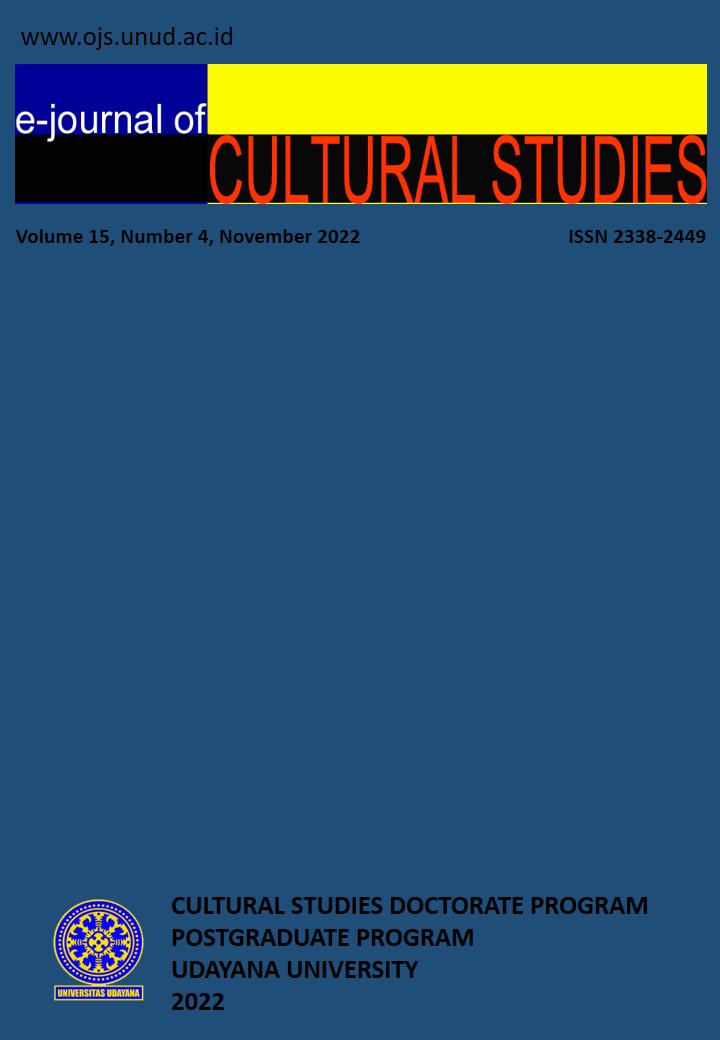TOURISM INDUSTRY AS THE DOMINANT IDEOLOGY IN IMPLEMENTATION OF EDUCATION IN SOUTH KUTA
Abstract
The development of Bali tourism industry has influenced various sectors of Balinese life, including how they define education. This study aims to examine the power relations of the tourism industry and the dominant ideology contained in the implementation of education in South Kuta. The problems were analyzed using Michel Foucault’s power relation theory and Pierre Bourdieu’s generative structural theory. This research was designed by cultural studies and analyzed by interpretive qualitative methods. The results show that the tourism industry has become the dominant ideology in education development in South Kuta. Some schools responded to the growth of the tourism industry in South Kuta by establishing tourism-related majors. The power relations of the tourism industry in the world of education have led to the vocational education phenomenon. Vocational education is related to the concept of link and match such as connecting education with the industrial world which is being heavily campaigned by the government. On the other hand, students choose schools and tourism majors because they feel very attached to the tourism sector. Students seem to have no other options but tourism. In addition, students experience cultural unconsciousness and perceive the tourism industry as something natural. They understand the tourism industry as something familiar. Thus, students are no longer questioning or being critical of the tourism industry due to it becoming the dominant ideology.
Keywords: power relation, tourism industry, ideology, vocational education







